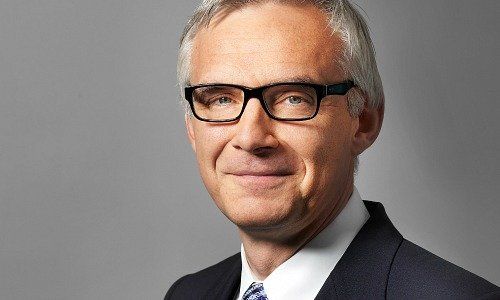The chairman of crisis-hit Credit Suisse, Urs Rohner, has backed the Swiss bank’s chief executive. But he cautions that Credit Suisse has to deliver in coming quarters.
Credit Suisse (CS) Chairman Urs Rohner’s backing of Chief Executive Tidjane Thiam comes as the bank’s shares hit lows last seen in the 1990s. «Both myself and the entire board are convinced that he is the right man for this job. He has introduced the right measures and will continue to do so,» CS’ chairman said in an interview with «Handelszeitung» (complete German interview in print edition).
Investors are also backing Thiam’s strategy and restructuring plans. «There is no strategic dissent,» Rohner says. He concedes that some investors have questioned «certain measures in Switzerland and Asia,» but says this is a given.
One Year Into a Crisis
Thiam began as head of CS exactly one year ago. He introduced wide-ranging restructuring measures as well as a new structure for the bank three months later. CS’ Swiss bank will be carved out and a minority stake will be publicly listed, among other measures. In Asia, the bank’s international wealth management activities and its investment bank will operate as separate units.
CS has been in deep crisis since then, with the share price falling below the 10 Swiss franc mark recently amid billions of francs in write-downs and quarterly losses.
No Criticism of Board
Asked about criticism of Credit Suisse’s board during the crisis, Rohner says the body has to deal with it, «as well as the fact that the criticism isn’t always fair.» He deflects any blame of the board, which under his leadership supported former CEO Brady Dougan’s strategy as well as the near-complete reversal of it under Thiam.
The board doesn't have an «antiquated mind-set,» he says. «I have to contradict this: we attempted to do things differently early, including with new members. The new strategy is proof that these accusations are false.»
Harris Associates, a major investor in CS, has called for the bank to strengthen its board following major undetected trading losses earlier this year.


































